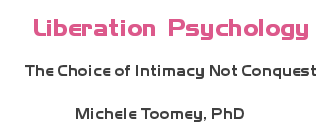|
When daughters are in their 30's, the relationship with their mother just naturally begins to change. Aging brings with it an equalizing factor. Yet, it is still very complicated to be mother and daughter. Mothers still have the need to feel they know more than their daughters. Daughters have the need to be recognized as the adult women they are who have their own wisdom. Daughters still need to feel loved and nurtured by their mothers and mothers need to feel loved and thoughtfully considered by their daughters.
Aging will eventually change the roles more dramatically. Mothers will more than likely become dependent on daughters to help them maintain quality of life. That is the natural evolution of aging and a mother's role with daughters and daughter's roles with a mother. But, when brain damage enters the scene, the scenario speeds up to fast forward, skipping years of gradual aging together and gradual shifting of roles.
Out of nowhere, they are hit with loss, terrible loss. Loss of shared memories from the distant and recent past. Loss of gradual aging together to the shock of mother's dependence, now. Not in 20 or 25 years, not when she's in her 80's and they're in their 50's and 60's. Now in her 60's, and they in their 30's, brain damage declares things are forever changed. Jump ahead. Miss the in between years of equal sharing and caring as we expected it. Jump right to mother's need, now. Skip the years of mother listening to your problems, hers are paramount and at times all consuming.
Daughters cry out, "Where's my turn?" "It's too soon", "I still need you", "I want to learn from you, play with you, laugh with you, cry with you, reminisce with you, leave my daughter with you." "I don't want to be here, yet." "It's too soon." "We're too young." Mother cries, "I don't want to be here now." "It's too soon." "I want to be there for my girls." "I want to give the party not be the guest." "I want to hover over them in my heart not need them to hover over me." "It's too soon." "I lose my things, I lose my thoughts, I lose my memory, and now I lose my precious years of equal give and take with my girls." "I want to be wise, to be helpful, to be admired. I don't want to be needy and forgetful." "I want to remember what we did, what we shared and what we felt." "I don't want to be here." "It's too soon." "We're too young."
Aha, the meeting place. First to grieve, together, for the deeply longed for years that have been stolen from you. Brain damage has not eliminated the capacity to share the knowledge of the loss. It is very much there. Perhaps the grieving needs more acknowledged space, more acknowledged time, more acknowledgment. Although we speak of this loss, and cry over it, maybe we don't bring it to the fore as often as it is felt and with as much attention as it has a right to get. There is a huge loss of years that may be lingering and bubbling under the surface that gets lost in the demands and activities of the present. But, it is a great loss to leave it there, unattended. It has the potential to bring a loving bond so intense, so warm, so deep, so dear, that it will allow you three, mother, daughter, and daughter, to experience your relationship in a way you never could have imagined. Tragedy has thrust you into a new phase, a phase of acute paradox, reconciled by your closeness with each other. Grateful yet bereft, intimate yet alone, eager yet exhausted, willing yet angry, enriched yet deprived, closer yet apart, for sure, deeper and committed yet pained and wanting to escape.
As you look in each others eyes and see the love, the loss, the abiding desire and the pain, it is the gift of still being able to know the truth of it all and share that truth with each other as you struggle, embrace, cry, attend, love, struggle, embrace, cry, attend and unite in undying love...that will feed your spirit, kindle the fire in your heart, and allow you to grieve and grow and age together. And in the end, be mother and daughters with such courage, depth and love that what you have is not less than what you lost. Rather, deeper, richer, closer...and even as it's harder, it is claimed as harder but worth it. Abiding love not only wasn't lost, it has been highlighted and brought to center stage. Many mothers and daughters don't have the gift of that and many don't even know what they've lost. You three, Marlene, Ginny and Betsy know not only what you lost but what you've gained. The integrity of that is priceless.
|



